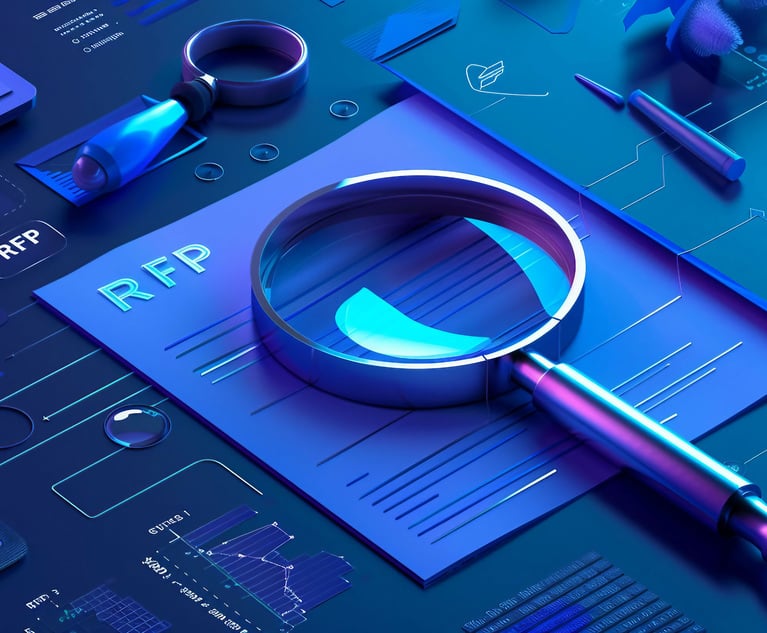Features

The End of Google Page One: How AI Is Transforming the Buyer Journey
For more than a decade, Google was the default gateway to inbound leads. Law firms built content strategies around page-one rankings, and legal technology companies poured budget into paid search ads because visibility at the top of the results meant visibility in the pipeline. But that era is ending.
Features

What In-House Legal Compensation Negotiations Reveal About Retention, Risk and Value
Our 2025 Navigating Compensation Negotiations report, based on the experiences of over 300 in-house legal professionals, provides a detailed look at how negotiation is evolving, where professionals succeed or struggle, and what employers can do to retain top legal talent. The findings suggest a profession that accepts negotiation as standard practice but continues to struggle with inequities in information, internal advancement, and the valuation of non-cash compensation.
Features

The Rise of Revenue Intelligence: Why Law Firms Are Leveraging AI to Reimagine the Revenue Lifecycle
Legal technology is in the middle of a paradigm shift — one where firms are no longer satisfied with incremental fixes and point solutions. Instead, they’re seeking transformation: of systems, workflows, and outcomes. Nowhere is that transformation more urgent — or more impactful — than in how firms manage the revenue lifecycle.
Features

Closing the Gaps In Legal Document Management: The Top 6 Things Law Firms Need to Know
Firms no longer have the luxury of making do: productivity is leaking, risk is compounding, and legacy systems — once seen as untouchable — are now being scrutinized through a different lens that prioritizes agility, security, and user experience. From dispelling misconceptions, to the risk of traditional print and how to focus on the basics, here are the top six things firms need to know about closing the gaps in legal document management.
Features

Current Proposal Generation Is Failing Law Firms
Clients now demand faster, more tailored responses. And as expectations rise, so does the pressure on law firms to deliver with greater speed, accuracy, and professionalism. But new research suggests the profession isn’t keeping up.
Features

The Art of Eating in the Eye of the Storm: How Mindful Nourishment Can Transform Legal Practice
The legal profession doesn’t just demand excellence; it devours those who cannot sustain it. Law firms scramble to address time management and mental health, yet one daily ritual remains overlooked: how lawyers eat.
Features

What Should Clients Do After Getting a Large Settlement?
You might have a client who has won a large judgment in court. After settling up with your firm, they have a large sum of money. Logically, they should preserve the money or put it to work providing an income for the future. How involved should you be? How involved do you want to be?
Features

Best Practices and Common Pitfalls In Trust Accounting
Trust accounting — specifically, the management and recordkeeping of client trust accounts — is an aspect of legal practice that demands meticulous attention. This article identifies best practices for trust accounting and recordkeeping and outlines common pitfalls in an effort to help lawyers maintain compliance and uphold client trust.
Features

Five Leadership Tactics That Will Determine Whether AI Becomes a Force for Innovation or Inertia
As law firms race to modernize, the differentiator won't be access to AI, but how leadership guides its adoption. A new era demands a human-driven approach: one that can articulate vision, lead through change, reshape culture and reengage people.
Features

Eating In the Eye of the Storm: How Mindful Nourishment Can Transform Legal Practice
The legal profession doesn’t just demand excellence; it devours those who cannot sustain it. Law firms scramble to address time management and mental health, yet one daily ritual remains overlooked: how lawyers eat.
Need Help?
- Prefer an IP authenticated environment? Request a transition or call 800-756-8993.
- Need other assistance? email Customer Service or call 1-877-256-2472.
MOST POPULAR STORIES
- The DOJ's New Parameters for Evaluating Corporate Compliance ProgramsThe parameters set forth in the DOJ's memorandum have implications not only for the government's evaluation of compliance programs in the context of criminal charging decisions, but also for how defense counsel structure their conference-room advocacy seeking declinations or lesser sanctions in both criminal and civil investigations.Read More ›
- Use of Deferred Prosecution Agreements In White Collar InvestigationsThis article discusses the practical and policy reasons for the use of DPAs and NPAs in white-collar criminal investigations, and considers the NDAA's new reporting provision and its relationship with other efforts to enhance transparency in DOJ decision-making.Read More ›
- The DOJ's Corporate Enforcement Policy: One Year LaterThe DOJ's Criminal Division issued three declinations since the issuance of the revised CEP a year ago. Review of these cases gives insight into DOJ's implementation of the new policy in practice.Read More ›
- ITC General Exclusion Orders Targeting All Importers Are On the RiseIn recent years, the ITC has issued more General Exclusion Orders (GEOs) than in the past. For importers of products potentially implicated by a requested GEO, the GEO can be a major threat even if the importer is not a respondent in the case.Read More ›
- A Lawyer's System for Active ReadingActive reading comprises many daily tasks lawyers engage in, including highlighting, annotating, note taking, comparing and searching texts. It demands more than flipping or turning pages.Read More ›
